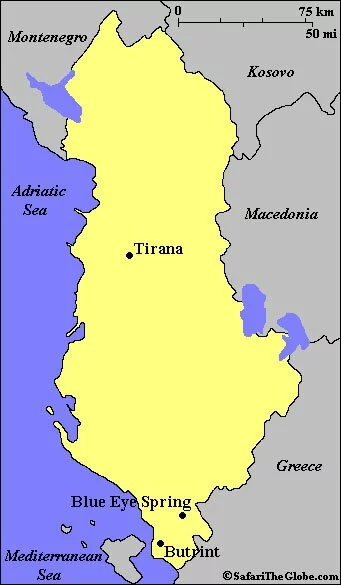This lack of political influence changed in the 1400s when the Ottoman Turks arrived and took over the region. Despite resistance efforts, the people were taken over and slowly adopted many cultural aspects found in Turkey. The greatest of these influences came in the form of religion as the Albanians widely adopted Islam and converted in large numbers. This conversion also put the Albanians at odds with most of their neighbors, who maintained their Christian faiths.
The withdrawal of the Turks from the peninsula led to a stronger Albanian identity and a legitimate argument for independence from neighboring countries. The Albanian people had formed a distinct culture in many ways, from language and foods to religion and architecture. This gave Albania independence, but many ethnic Albanians fell outside their modern borders, including in Kosovo, which has led to strained relations with many of their neighbors.
Today Albania continues on its own path with its own political agenda, its own culture, and its own lifestyle based on the mountains, but greatly affected by modern technology. These differences have led to a unique culture and lifestyle, but also economic and political struggles as the country seems stagnant at many times. None-the-less, the country is finding ways to move forward and tourists are only beginning to find their beautiful coasts and all they have to offer.
Map of Albania:
